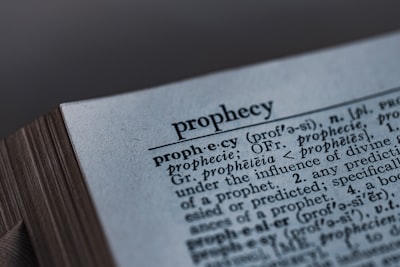Faith, Delusion, and Danger: When Claims of Prophecy Turn Violent
The intersection of faith, mental health, and public safety is once again under scrutiny after the tragic shooting at a Michigan church, where the suspect reportedly told the pastor he was a prophet and claimed to "hear from God." This incident forces us to confront uncomfortable truths about the vulnerabilities present in religious communities—and the broader implications for society.
The Fine Line Between Faith and Delusion
Religious belief is personal and sacred for many, with claims of divine inspiration forming the bedrock of numerous historical movements. But when one individual’s conviction morphs into claims of supernatural authority—especially coupled with erratic or violent behaviors—the distinction between genuine faith and dangerous delusion becomes blurred.
| Aspect | Faith-Based Experience | Potential Red Flag |
|---|---|---|
| Community Impact | Uplifting, unifying | Isolating, causing fear |
| Message | Gospel, hope, peace | Doom, threats, violence |
| Accountability | Elders, scripture, dialogue | Demands obedience |
| Personal Claim | Inspired, humble | Absolute, grandiose |
Controversy and Responsibility
Churches face a dilemma: How much should spiritual leaders intervene when congregants exhibit disturbing beliefs or behaviors? Rejecting someone who claims to “hear from God” risks alienating those who earnestly seek guidance; dismissing mental health red flags, though, can have devastating consequences.
Mental health professionals warn that messages of grandiosity ("I am a prophet") coupled with claims of hearing voices often point to untreated psychological conditions, such as schizophrenia or severe psychosis. The challenge for church leaders is recognizing when such claims cross from spiritual into clinical territory. Collaboration between faith groups and mental health specialists is critical but too seldom pursued.
Broader Trends and Societal Impact
Surprisingly, incidents like this are not isolated. In the past decade, multiple violent acts in religious spaces have involved perpetrators claiming divine instruction or special prophecy. The U.S.—with high rates of both religious engagement and unmet mental health needs—remains particularly vulnerable to these intersections.
The Path Forward
- Education and Training: Faith leaders should be trained to recognize mental illness, reducing stigma and facilitating referrals to professionals.
- Safer Spaces: Building clear protocols for managing disruptive or potentially dangerous individuals is vital for congregational safety.
- Dialogue, not Dismissal: Open discussion about the limits of spiritual authority and respect for all interpretations helps reduce the power of extreme claims.
Churches, as centers of trust and support, have a unique opportunity—and responsibility—to lead by example. Approaching “prophets” with compassion and discernment is not just pastoral care; it is potentially lifesaving.
This article was inspired by the headline: 'Michigan church shooter told pastor that he was a prophet and ‘heard from God’'.

Comments
No comments yet. Be the first to comment!